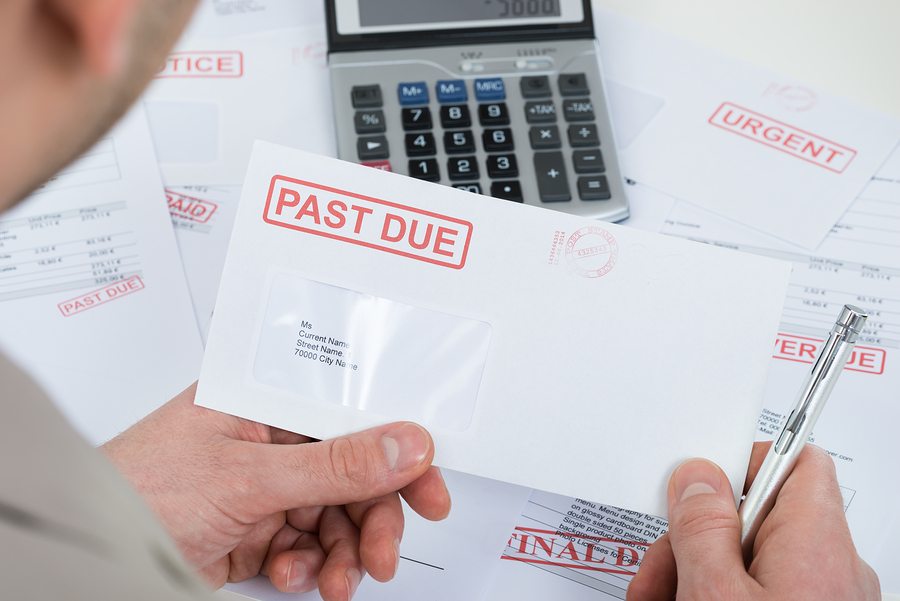If your debt has gone to collections, you might be wondering whether to pay the debt collector or try to settle with the original creditor. This choice is more than just deciding whom to pay; it affects your financial recovery and how your credit score looks down the line.

Once a debt is in collections, the original creditor has usually given up on it and sold it to a collection agency for pennies on the dollar. This shift changes how you can deal with the debt—everything from how much you might be able to settle for to who you should even pay.
In this article, we will examine the pros and cons of paying the debt collector versus going back to the original creditor. We’ll discuss legal rights with collectors, the chance to negotiate a lower payoff, and how these choices affect your credit report. Plus, we’ll look at situations where it makes sense to reach out to the original creditor, even after the debt has been sold.
Avoiding Debt Collections and Its Impact on Your Finances
It’s better to deal directly with the original creditor than to have your debt sold to a debt collection agency or law firm. Debt collection agencies are often more aggressive in their collection attempts and may take extreme measures.
The “original creditor” is the first source of the money loaned. However, if they can’t get you to pay your debt, they often assign it to a debt collection agency.
When Your Debt Moves to a Collection Agency
In some cases, the original creditor will sell the debt to a third-party collection agency. These debt buyers pay the original creditor a percentage of the total debt collected. In most cases, debt buyers pay pennies on the dollar for the debt.
At that point, the debt collector owns the debt. They can then proceed to collect the full amount, plus fees, court costs, and interest. Then, typically, the debt collector can go to court with a lawsuit against you.
If you lose the case, you’ll receive a judgment, often for the highest amount possible. If you don’t pay the judgment right away, it could continue to accrue interest.
Eventually, you could also be subject to wage garnishment to have the judgment repaid. Plus, having either a collection or judgment (or worse, both) listed on your credit report can do lasting damage to your credit scores.
Your best bet is to deal directly with the original creditor and avoid dealing with a debt collection agency altogether.
Signs That Your Debt Has Been Transferred to Collections
The original creditor handles most debts until they hit about 150 days of delinquency. So if you’re only two or three months behind on your monthly payments, chances are, the original creditor still holds your debt.
You should receive a written notice in the mail warning you that your account is about to go into collections. So, keep an eye out for any correspondence from your creditor.
Never throw any paperwork away, even if you’re dreading what may be inside. If you’re uncertain whether you’ve received a letter or not, call the creditor. Even if you’re at odds with them, they should be a trustworthy source of information regarding your account’s status.
Is it better to pay the debt collector or original creditor?
If the original creditor indicates that your account has already been sold to a debt collector, first see if you can ask to have it pulled back from the collection agency. If they refuse, it’s important to contact the debt collector and validate the debt. You can do this by sending them a debt validation letter. This ensures that the debt collector hasn’t resold your account elsewhere and that you’re negotiating with the right party.
Hopefully, though, your debt still resides with the original creditor, and you can move forward with them in the settlement process. This is also why staying on top of correspondence and not putting off dealing with defaulted loans is crucial.
See also: If a Debt Is Not on My Credit Report, Do I Have to Pay It?
Dealing with Debt Collectors
If you must deal with a debt collector, you should know your rights under the Fair Debt Collection Practices Act (FDCPA). Then, if you have any complaints about how a debt collector is handling the debt, contact the Consumer Financial Protection Bureau.
Furthermore, check out our in-depth article on how to settle your debts with a debt collector.
How to Settle Your Debt with the Original Creditor
Before picking up the phone and asking for a lower payment, have a strategic plan in place. Don’t be afraid to jot down some notes or talking points to have on hand. Ready for a strong negotiation plan? Let’s get started.
Know Your Financial Ability
If you’ve defaulted on your debt payments, chances are you’re having trouble with money. Therefore, when negotiating with an original creditor, it’s important to know exactly what you can offer in advance.
For example, if the unpaid debt amount is $1,000, and you have $500 in hand to pay it, it makes sense for you to contact the original creditor with that goal in mind.
It’s not a good idea to make any promises you know you can’t keep. Plus, a creditor is more likely to accept a lump sum payment over installments because it’s guaranteed cash for them. So, make sure you go into negotiations with a final number in mind and be certain you can afford it.
Exactly what percentage of your debt is a creditor willing to settle for? The answer really depends on each creditor. But one factor that is a major influencer is time. If a debt is newer, say 120 days old, the creditor will most likely want closer to the amount owed.
If a debt is older, such as 9 months old, the creditor will likely accept a lower amount to settle the matter and get it off their books. Consequently, it’s helpful to do some research on the creditor’s situation before trying to settle the debt.
Handling Negotiations
When negotiating with a creditor, don’t offer the whole amount at the beginning because a counteroffer is likely. This begins the process of negotiation. The process ends when an agreed-to amount is set.
While most creditors want a lump-sum payment over installments, it is possible in some cases to establish an installment agreement. This helps stop the collection calls and keeps the creditor from initiating court action.
However, it’s also important to only agree to a payment plan that you can afford. Usually, if an installment agreement is established, and you miss a payment, the full amount of the original debt (less any payments) will again become due. Remember, the creditor already has the experience of your failure to pay, and now they want to see success.
Still, you need to protect yourself. If the original debt was agreed to be settled for a lesser amount, be sure to get an agreement in writing from the creditor. This is typically done before the exchange when you actually pay the debt.
See also: The 623 Dispute Method – Disputing with the Original Creditor
Summary of Important Debt Settlement Strategies
To recap, the main action items for debtors who wish to settle their debt with the original creditor are:
- Know your scope of your financial ability to repay
- Contact the original creditor
- Have money ready to make a lump sum payment
- Negotiate with clarity
- Fulfill all promises to the creditor
- Get everything in writing BEFORE sending money
The Impact on Credit Scores After Settling Debt
Once you’ve settled your debt with the original creditor, your credit scores will likely take a hit. This happens because the debt will be listed as “settled.” It’s still better than being defaulted or charged off, but it’s something that future lenders can see. And it could raise a red flag when considering your credit application.
Use your credit report listing as part of the negotiation process to avoid this scenario, especially if you’re offering a large one-time payment.
As part of your agreement to pay, request that the creditor report the debt to the credit bureaus as “Paid As Agreed” on your credit report. Even if you don’t successfully get it updated, it’s worth a shot. It can even be used as further leverage during the negotiation process.
Alternative Strategies for Settling Your Debt
If you’re not confident you can handle the process and negotiate the debt settlement successfully on your own, you can hire a company to help. In general, it is best to utilize a debt settlement service with extensive experience in negotiations.
Check Out Our Top Picks for 2025:
Best Debt Settlement Companies
Credit counselors can help, as can professional debt settlement companies or even an attorney. To avoid legal action and the negative effects on your credit history and credit score, you want to settle the debt for as little as possible.




